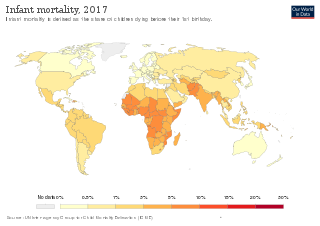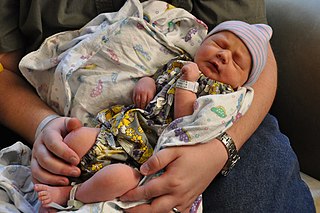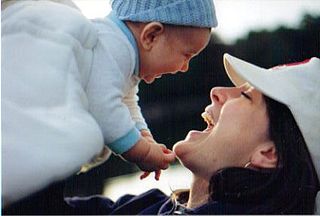
Cognitive science is the interdisciplinary, scientific study of the mind and its processes. It examines the nature, the tasks, and the functions of cognition. Mental faculties of concern to cognitive scientists include language, perception, memory, attention, reasoning, and emotion; to understand these faculties, cognitive scientists borrow from fields such as linguistics, psychology, artificial intelligence, philosophy, neuroscience, and anthropology. The typical analysis of cognitive science spans many levels of organization, from learning and decision to logic and planning; from neural circuitry to modular brain organization. One of the fundamental concepts of cognitive science is that "thinking can best be understood in terms of representational structures in the mind and computational procedures that operate on those structures."

Developmental psychology is the scientific study of how and why humans grow, change, and adapt across the course of their lives. Originally concerned with infants and children, the field has expanded to include adolescence, adult development, aging, and the entire lifespan. Developmental psychologists aim to explain how thinking, feeling, and behaviors change throughout life. This field examines change across three major dimensions, which are physical development, cognitive development, and social emotional development. Within these three dimensions are a broad range of topics including motor skills, executive functions, moral understanding, language acquisition, social change, personality, emotional development, self-concept, and identity formation.

Parenting or child rearing promotes and supports the physical, cognitive, social, emotional, and educational development from infancy to adulthood. Parenting refers to the intricacies of raising a child and not exclusively for a biological relationship.

Infant mortality is the death of an infant before the infant's first birthday. The occurrence of infant mortality in a population can be described by the infant mortality rate (IMR), which is the number of deaths of infants under one year of age per 1,000 live births. Similarly, the child mortality rate, also known as the under-five mortality rate, compares the death rate of children up to the age of five.

An infant or baby is the very young offspring of human beings. Infant is a formal or specialised synonym for the common term baby. The terms may also be used to refer to juveniles of other organisms. A newborn is, in colloquial use, an infant who is only hours, days, or up to one month old. In medical contexts, a newborn or neonate is an infant in the first 28 days after birth; the term applies to premature, full term, and postmature infants.

Jealousy generally refers to the thoughts or feelings of insecurity, fear, and concern over a relative lack of possessions or safety.

Imitation is a behavior whereby an individual observes and replicates another's behavior. Imitation is also a form of that leads to the "development of traditions, and ultimately our culture. It allows for the transfer of information between individuals and down generations without the need for genetic inheritance." The word imitation can be applied in many contexts, ranging from animal training to politics. The term generally refers to conscious behavior; subconscious imitation is termed mirroring.

Harry Frederick Harlow was an American psychologist best known for his maternal-separation, dependency needs, and social isolation experiments on rhesus monkeys, which manifested the importance of caregiving and companionship to social and cognitive development. He conducted most of his research at the University of Wisconsin–Madison, where humanistic psychologist Abraham Maslow worked with him for a short period of time.

Attachment theory is a psychological and evolutionary framework concerning the relationships between humans, particularly the importance of early bonds between infants and their primary caregivers. Developed by psychiatrist and psychoanalyst John Bowlby (1907–90), the theory posits that infants need to form a close relationship with at least one primary caregiver to ensure their survival, and to develop healthy social and emotional functioning.

A maternal bond is the relationship between a biological mother/caregiver and her child or baby. While typically associated with pregnancy and childbirth, a maternal bond may also develop in cases later on in life where the child is unrelated, such as in the case of an adoptee or a case of blended family.
Jerome Kagan was an American psychologist, who was the Daniel and Amy Starch Research Professor of Psychology at Harvard University, as well as, co-faculty at the New England Complex Systems Institute. He was one of the key pioneers of developmental psychology.

Allan N. Schore is an American psychologist and researcher in the field of neuropsychology.

Child development involves the biological, psychological and emotional changes that occur in human beings between birth and the conclusion of adolescence. It is—particularly from birth to five years— a foundation for a prosperous and sustainable society.

The palmar grasp reflex is a primitive and involuntary reflex found in infants of humans and most primates. When an object, such as an adult finger, is placed in an infant's palm, the infant's fingers reflexively grasp the object. Placement of the object triggers a spinal reflex, resulting from stimulation of tendons in the palm, that gets transmitted through motor neurons in the median and ulnar sensory nerves. The reverse motion can be induced by stroking the back or side of the hand. A fetus exhibits the reflex in utero by 28 weeks into gestation, and persists until development of rudimentary fine motor skills between two and six months of age.
Mary Main was an American psychologist notable for her work in the field of attachment. A Professor at the University of California Berkeley, Main is particularly known for her introduction of the 'disorganized' infant attachment classification and for development of the Adult Attachment Interview and coding system for assessing states of mind regarding attachment. This work has been described as 'revolutionary' and Main has been described as having 'unprecedented resonance and influence' in the field of psychology.
In biology, paternal care is parental investment provided by a male to his own offspring. It is a complex social behaviour in vertebrates associated with animal mating systems, life history traits, and ecology. Paternal care may be provided in concert with the mother or, more rarely, by the male alone.

Kenneth Dodge is the William McDougall Distinguished Professor of Public Policy and Professor of Psychology and Neuroscience at Duke University. He is also the founding and past director of the Duke University Center for Child and Family Policy and founder of Family Connects International.
Nancy Bayley was an American psychologist best known for her work on the Berkeley Growth Study and the subsequent Bayley Scales of Infant Development. Originally interested in teaching, she eventually gained interest in psychology, for which she went on to obtain her Ph.D. in from the University of Iowa in 1926. Within two years, Bayley had accepted a position at the Institute for Child Welfare at the University of California, Berkeley. There she began the longitudinal Berkeley Growth Study, which worked to create a guide of physical and behavioral growth across development. Bayley also examined the development of cognitive and motor functions in children, leading to her belief that intelligence evolves over the course of child development. In 1954, Bayley began working on the National Collaborative Perinatal Project (NCPP) with the National Institute of Mental Health (NIMH), where she applied her work to infants. After retiring in 1968, Bayley synthesized her work and published the Bayley Scales of Infant Development, which is still in use today. For her efforts in the field of psychology, Bayley became the first woman to receive the Distinguished Scientific Contribution award from the American Psychological Association (APA), of which she was a fellow, amongst other honorary awards. Bayley was also a member of the American Association for the Advancement of Science. She died at the age of 95 from a respiratory illness.
Social emotional development represents a specific domain of child development. It is a gradual, integrative process through which children acquire the capacity to understand, experience, express, and manage emotions and to develop meaningful relationships with others. As such, social emotional development encompasses a large range of skills and constructs, including, but not limited to: self-awareness, joint attention, play, theory of mind, self-esteem, emotion regulation, friendships, and identity development.
Daniel S. Messinger is an American interdisciplinary developmental psychologist, and academic. His research works span the field of developmental psychology with a focus on emotional and social development of children and infants, and the interactive behavior of children in preschool inclusive classroom.













